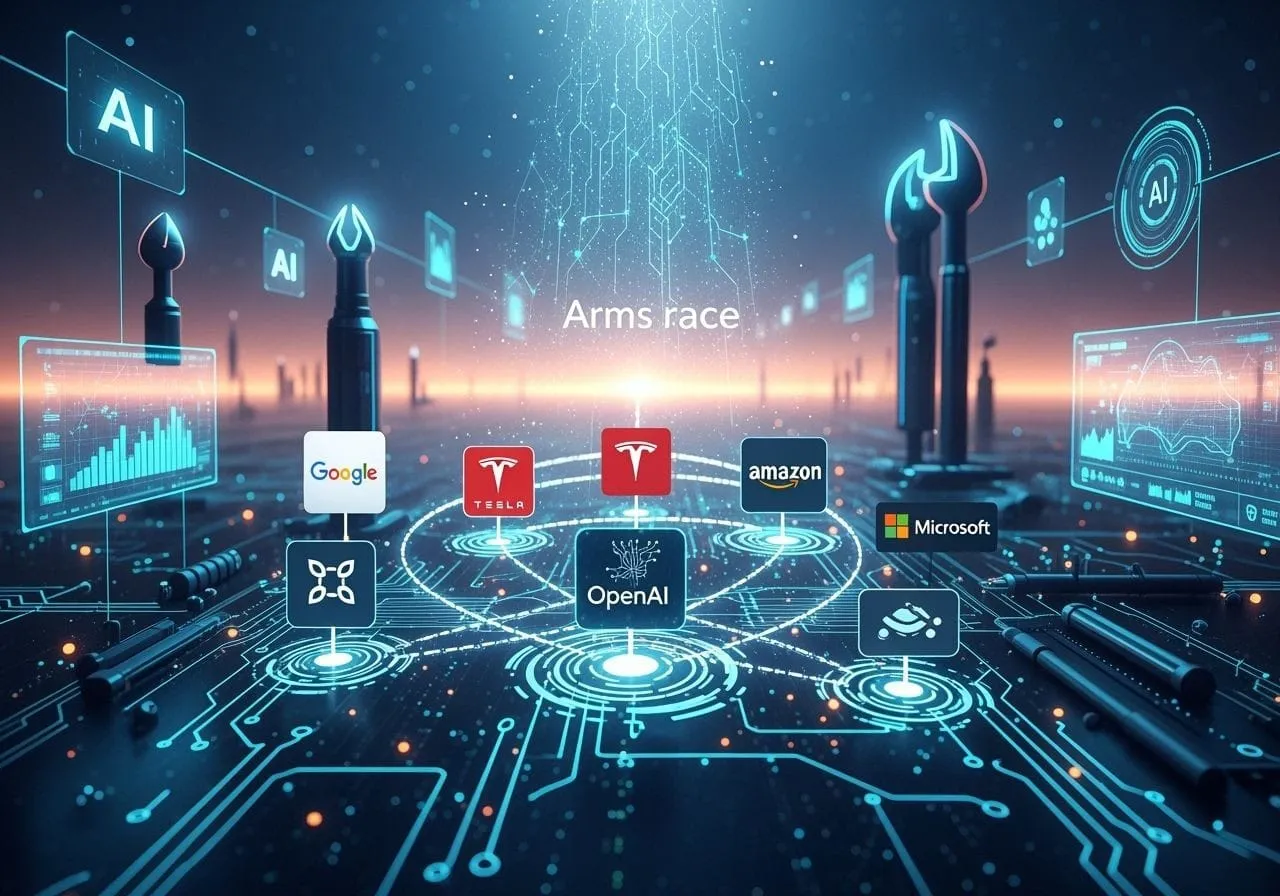Welcome to the AI arms race, where the stakes aren’t just about who can build the smartest machine—they’re about who will control the future. Forget the “change the world” fluff. These companies are building the infrastructure for the digital age, and if you’re not paying attention, you’re already a step behind.
Like What You Read? Dive Deeper Into AI’s Real Impact.
Keep Reading- OpenAI vs. Google: OpenAI’s ahead, but Google’s not out yet.
- Amazon’s Quiet Lead: Amazon’s building the AI infrastructure of tomorrow.
- Tesla’s Gamble: Tesla’s self-driving bet hinges on data, not just cars.
Google DeepMind vs. OpenAI: The Race to the AI Holy Grail
DeepMind used to be the crown jewel of AI, pushing the envelope with breakthroughs like AlphaGo and making us all believe that the future of AI was right around the corner. But then came GPT-4. Suddenly, Google’s monolithic machine learning operation looked sluggish in comparison. The real kicker? While Google may have the data and the resources, OpenAI is crafting something that feels a little more human—something that changes the way we interact with AI.
The real battle isn’t about raw data or computing power—it’s about what comes next: general intelligence. The company that nails this will control the intelligence that drives everything from global economies to our daily lives. Right now, OpenAI is ahead, but Google’s not one to lose quietly. This race is far from over.
Amazon’s Silent Takeover
While everyone’s ogling DeepMind and OpenAI like they’re the only players in town, Amazon’s over here quietly running the board. It’s not flashy, but its AI quietly shapes everything from the way we shop to how we get our groceries delivered. AWS powers most of the world’s tech infrastructure, and it’s becoming the backbone of AI systems everywhere. This isn’t just about retail—it’s Amazon’s long-term play to dominate healthcare, logistics, urban planning, and beyond.
If you’re still thinking Amazon’s just about selling books and gadgets, it’s time to wake up. The company is positioning itself to be the very spine of a new AI-driven world, making it more than just a player—it’s the foundation. You don’t need to be a rocket scientist to know that whoever controls the infrastructure wins. Right now, Amazon’s looking like a heavy favorite.
Tesla Gamble: AI in the Driver’s Seat
The road to self-driving cars might still have bumps, but Tesla’s AI is the front-runner in this race. What sets it apart? It’s not the vehicles themselves, but the data—the constant flow of insights gathered from roads, traffic patterns, and human behavior. With every error, the system sharpens its instincts. In this race, we’re not asking if, but when will it cross the finish line?
But let’s not kid ourselves—this is a high-stakes gamble. Waymo, Cruise, and other players are pushing for self-driving dominance too. So far, Tesla’s leading the charge, but self-driving is an incredibly messy business. One accident could send this dream crashing down faster than a Tesla plowing through a red light. Yet, Tesla’s risk is part of what makes them dangerous: they’re betting on failure to eventually win big.
Microsoft’s Ambitions
Their AI investments aren’t just in software—they’re pushing AI-powered cloud computing as the next frontier, making it easier for businesses to scale their own AI systems. This makes Microsoft a powerful but quieter force in the race, controlling vast amounts of data and cloud capacity, with little fanfare but major impact.
China’s AI Surge: The Elephant in the Room
China isn’t just competing. Backed by government-led investments, they’re targeting critical areas like surveillance, facial recognition, and smart cities. It’s a power play: not only are they creating the tools, they’re building the infrastructure to control them.
The Key to Tomorrow’s Power
Every move these companies make is about who gets to control tomorrow. Right now, it’s not about who has the coolest AI toy—it’s about who builds the systems that can shape the world.
These are the players that will define the next era, and they’re not slowing down anytime soon. The question isn’t who’s winning today—it’s who’s going to control the digital future that’s being built right now. And that’s where the real battle will be won or lost.



